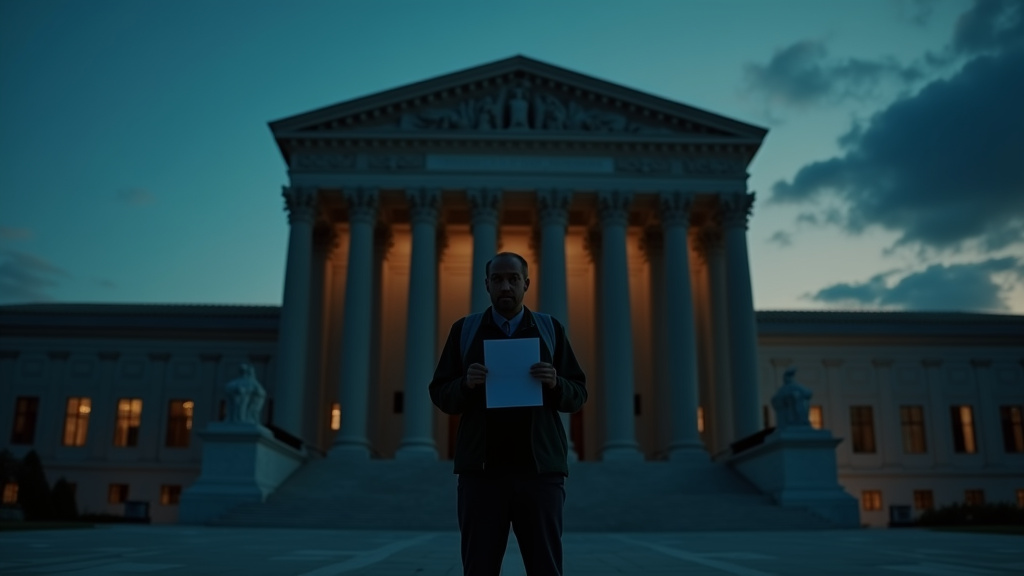CHICAGO – In a significant legal challenge, the City of Chicago, alongside eight other municipal governments, has filed a federal lawsuit against the Trump administration. The lawsuit, lodged on Monday in the U.S. District Court for the Northern District of Illinois, contests new conditions imposed by the Department of Homeland Security (DHS) that threaten critical federal grant funding. These new stipulations require cities to certify they do not operate Diversity, Equity, and Inclusion (DEI) programs, or risk losing millions of dollars designated for emergency preparedness and disaster response. This development marks a new front in ongoing legal battles over federal funding and local autonomy.
Core Allegations: DEI as a Barrier to Emergency Funds
The lawsuit contends that the Trump administration’s new funding conditions are unlawful and constitute an overreach of federal authority. According to city officials, the Department of Homeland Security’s latest requirements demand that grant recipients certify they do not engage in or promote “DEI, DEIA and discriminatory equity ideology.” Failure to provide such certification could result in the forfeiture of tens of millions of dollars essential for public safety and disaster mitigation. Plaintiffs argue that these conditions violate the Constitution’s separation of powers by usurping Congress’s explicit spending authority and are “arbitrary and capricious” as they lack reasoned justification and contradict the fundamental purpose of the grants.
High Stakes: Millions in Emergency Preparedness Funding at Risk
The federal grants in question are vital for equipping local governments to respond to a wide range of emergencies, from terrorism and public safety threats to natural disasters. For decades, agencies like DHS and the Federal Emergency Management Agency (FEMA) have partnered with local governments through these grants to fund crucial operations. This includes training first responders, modernizing emergency operations centers, establishing public alert systems, and acquiring life-saving equipment such as bomb squad hazmat suits. The lawsuit seeks to protect these essential capabilities, arguing that the new federal demands jeopardize the robustness of these emergency response systems.
A Clash of Values and Federal Authority
Mayor Brandon Johnson of Chicago articulated a strong stance against the federal government’s actions, stating, “Chicago will not stand by while the federal government weaponizes emergency funding to attack our values”. He emphasized that promoting equity and ensuring all residents have an opportunity to succeed is a matter of “basic fairness” and not discrimination. “We will fight to ensure our first responders have the tools they need, that our commitment to equity and inclusion remains strong, and that we receive every federal dollar intended for public safety,” Johnson added. Corporation Counsel Mary B. Richardson-Lowry echoed these sentiments, asserting that the federal government cannot compel cities to dismantle DEI programs in exchange for disaster relief, and stressed the need to defend constitutional principles in the city’s emergency response.
Broader Context: Sanctuary Cities and Federal Funding Battles
This legal action is part of a broader, ongoing conflict between the Trump administration and numerous cities and states over federal funding, particularly concerning “sanctuary city” policies. In previous instances, the administration attempted to withhold federal funds from jurisdictions that limited cooperation with federal immigration enforcement. While federal courts have often ruled against these attempts, blocking the administration from conditioning grants on immigration enforcement cooperation, this new lawsuit targets DEI initiatives as the condition for emergency preparedness funds. The news comes amidst reports of intensifying ICE enforcement activities in the Chicago area, prompting state lawmakers to consider additional protections for hospitals. This ongoing tension highlights a national trend of cities pushing back against federal mandates they deem overreaching and detrimental to local governance and community values.
Next Steps and Implications
The coalition of municipalities is asking the court to declare the new DHS funding conditions unlawful and to issue an injunction preventing federal agencies from enforcing them. The outcome of this case could set a significant precedent regarding the extent to which federal agencies can impose specific policy requirements unrelated to the core purpose of grant programs. As this trending news unfolds, it underscores the persistent friction between federal authority and local control, particularly in cities that prioritize diverse and inclusive policies. The outcome will be closely watched by municipalities nationwide, particularly those concerned about maintaining their values while securing essential federal funding. This news is a critical development in the broader narrative of federal-local government relations and the popular debate surrounding equity initiatives.














